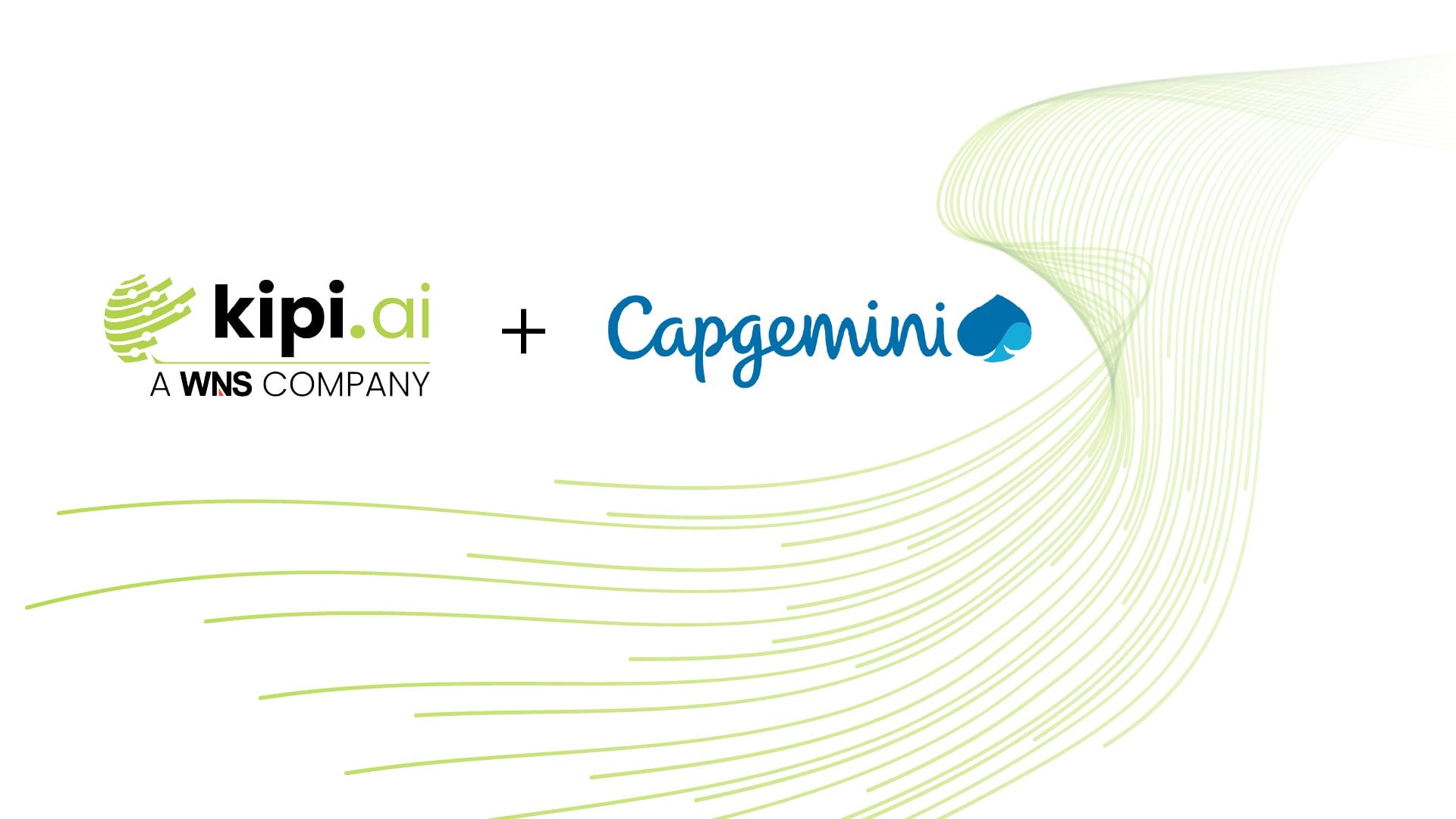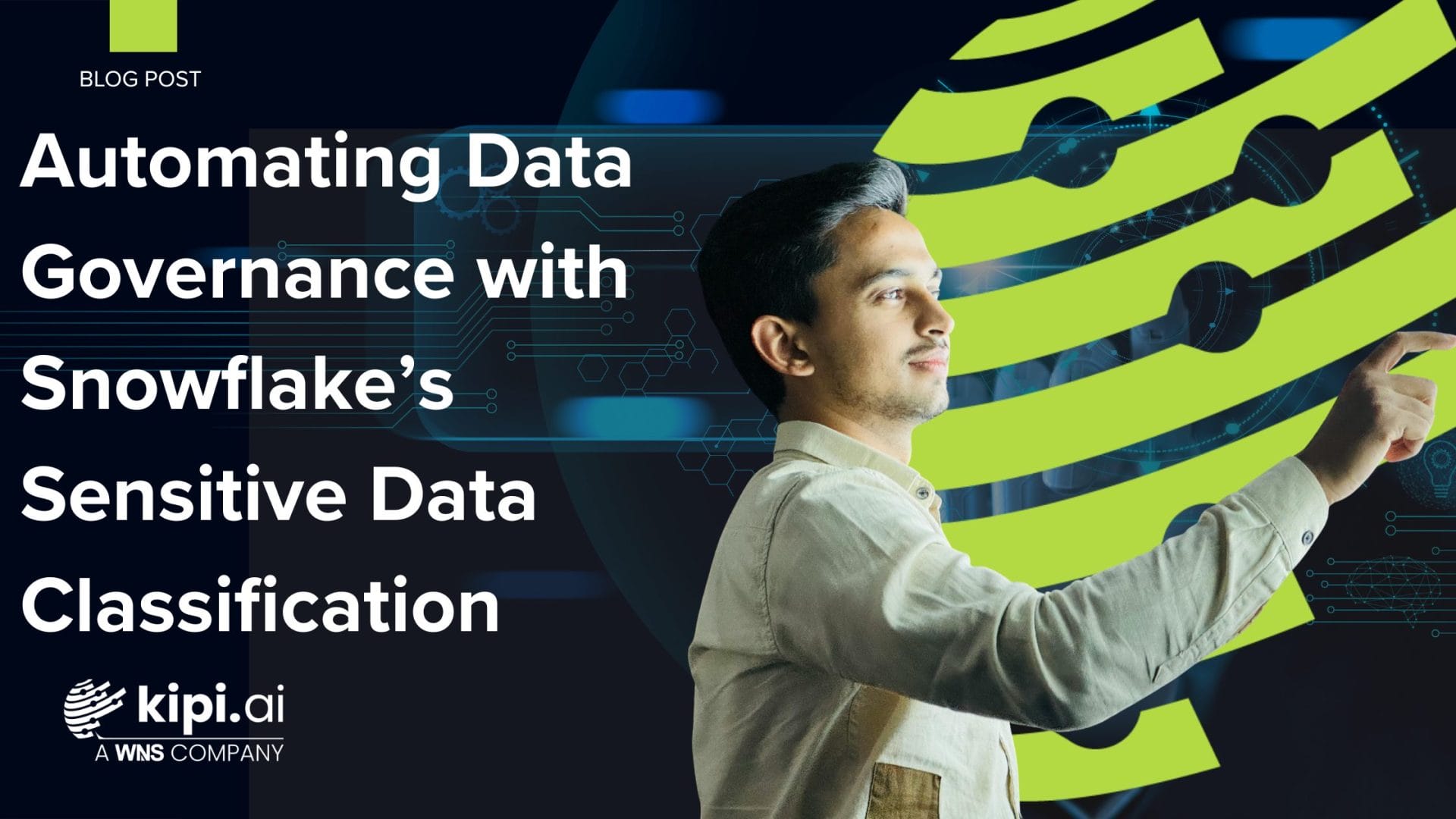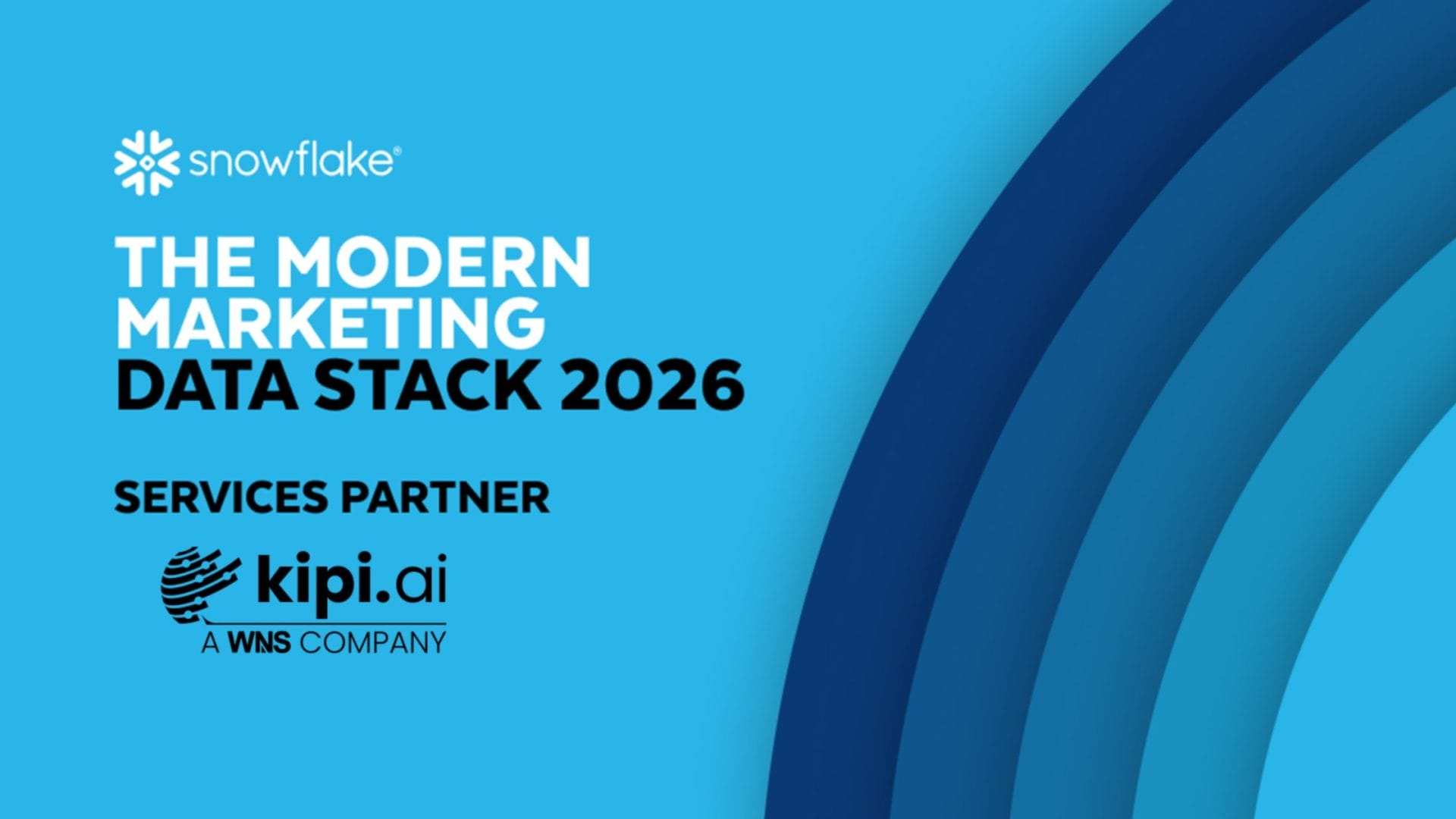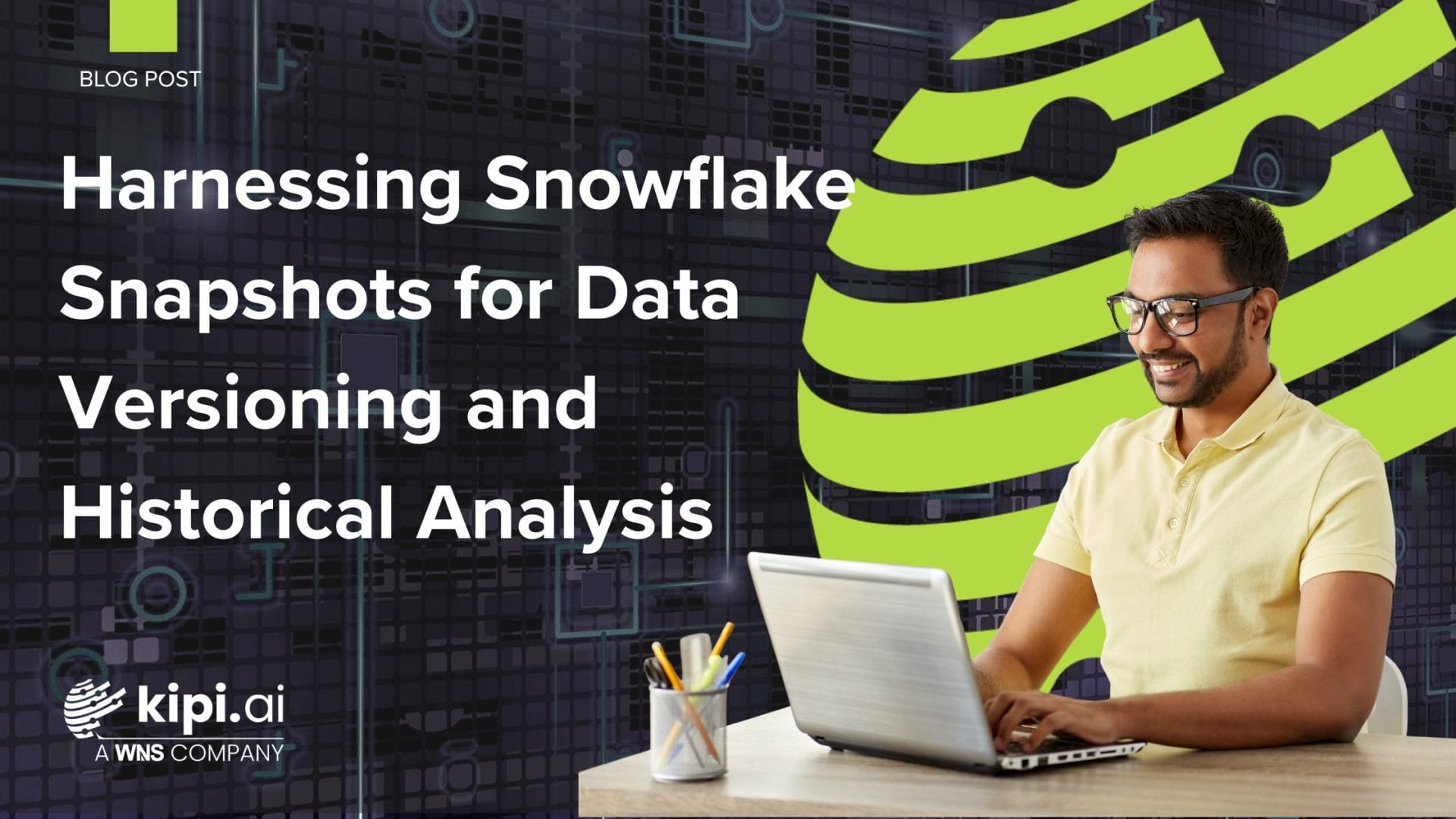by: Ganesh Rajendra Kusundal & Radhika Jain
Introduction
As organizations across industries onboard or migrate to the Snowflake AI Data Cloud, they frequently encounter data integration & ingestion challenges. Integrating diverse data sources with different message formats – from legacy databases and on-premises systems to SaaS or cloud applications, file systems and streaming devices can involve numerous ELT or ETL tools and custom code which significantly increases the turn-around time to collate & consume the desired data as per business requirements. Apart from the complexity that is inherent in managing the tools or custom code, there is also additional cost associated in procuring these tools & running the pipelines along with the governance & security considerations that need to be taken into account before onboarding these tools. This often results in fragmented, hard-to-manage data pipelines that struggle to scale and lack real-time capabilities. The reliance on manual processes or a host of tools increases operational effort and delays the time it takes to get critical data into Snowflake for analysis, slowing down time-to-value.
Common Issues with COTS (Commercial Off-The-Shelf) Tools for Data Integration
- Integration Complexity: The tools may not natively support all data sources necessitating additional connectors or custom integrations.
- Data Preprocessing Limitations: Limited flexibility to handle complex transformations requiring custom scripts or external processing.
- Scalability Challenges: They may not effectively handle large data sets or high-velocity data without significant impacts on cost
- Cost Management: Licensing and subscription fees can escalate quickly, especially with enterprise-grade tools. Additional costs may arise from data transfer, storage, or connector usage.
- Vendor Lock-In: Limited ability to customize or extend the tool beyond its intended use. Proprietary formats or workflows can complicate migration to other tools or platforms.
- Monitoring and Troubleshooting: Debugging complex data flows may require advanced knowledge of the tool’s architecture.
- Compliance and Security: Handling sensitive data may necessitate additional security controls that are not native to the tool. Ensuring compliance with data protection regulations (e.g., GDPR, HIPAA) can be challenging without proper data lineage and auditing capabilities.
- Versioning and Upgrades: Tool updates or version changes can disrupt existing data flows or introduce compatibility issues.
Snowflake Openflow: Redefining Seamless Data Access
This is precisely why we are incredibly excited about Snowflake Openflow, Snowflake’s new solution poised to transform how customers onboard data. In simple terms, Openflow is Snowflake’s open, extensible, managed, multi-modal integration service built on Apache NiFi technology, born from Snowflake’s acquisition of Datavolo. Apache NiFi is a powerful enterprise-grade dataflow management tool, originally developed by the United States National Security Agency( NSA), designed to automate data flow between systems and handle complex, multimodal data types from a wide variety of sources and destinations. Openflow leverages this robust foundation to enable teams to design and automate data pipelines through a unified, event-based framework that is both highly extensible and massively scalable.
What makes Openflow a game-changer for customers facing integration woes?
- Unified & Open Integration: It provides a single platform to connect virtually any data source or target to Snowflake (and not just to Snowflake), ending the need for a patchwork of disparate tools and scripts. It comes with a rich library of connectors and processors, allowing integration with diverse systems and complex ones like enterprise ERP systems.
- API-Driven & Event-Based: Pipelines can be programmatically controlled and triggered by events, enabling real-time responses to business events. This automates key integration tasks, significantly reducing manual labor, scheduling overheads and errors in data onboarding. Data can be captured and loaded into Snowflake the moment it is produced in source systems, without human intervention or delay.
- Built for Scale & Reliability: Inheriting NiFi’s battle-tested capabilities, Openflow handles high-volume, high-velocity data flows, ingesting large amounts of data or thousands of events per second. Its engine supports clustering and parallel processing to scale with your data. It handles both batch and streaming data, structured or unstructured, within a single platform, maintaining throughput and low latency.
- Visual Design & Observability: Offers a visual interface for designing flows with drag-and-drop functionality. Users can see data moving in real time and adjust parameters on the fly. It maintains full observability and data lineage for governance, tracking every step of each data flow for easier troubleshooting and compliance.
- End-to-End Orchestration: Supports bi-directional data movement (ELT and reverse ETL), acting as a two-way bridge to push refined data out of Snowflake to downstream applications.
- Flexible Deployment: Openflow supports a multi deployment model. The platform is currently available for deployment in customers’ own cloud environment (Bring Your Own Cloud), now generally available in AWS. Customers can choose to deploy in their own VPC . The deployment and runtime in this case would reside in AWS while the Openflow service resides in Snowflake.
Customers have the option to run both deployment and service within Snowflake via Snowpark Container Services(SPCS), which is planned to be released soon in public preview. This flexible model provides enterprises with control over where integration workloads execute. - Cost-Effective Integration: By reducing the need for multiple third-party ETL tools and custom coding, Openflow lowers the total cost of building and maintaining data pipelines.
This open and extensible managed service, powered by Apache NiFi lets data engineers handle complex, bi-directional ETL processes. It offers out-of-the-box security, compliance, observability, and maintainability. Openflow was designed from the ground up to support ETL patterns for AI workloads and handle continuous, event-driven ingestion of multimodal data, which is crucial for AI processing. It also provides flexibility to easily swap APIs, sources, targets, and models.
The Power Duo – Driving Joint Value with Snowflake Openflow and kipi.ai

Kipi.ai, a WNS Company, empowers organizations to seamlessly build a resilient data and integration platform by combining advanced AI-driven automation with a modular, scalable architecture. We have deep experience across various clients that accelerates data integration, enhances data quality, and ensures end-to-end data visibility, enabling businesses to unlock actionable insights faster while maintaining robust data governance and reducing operational overhead. We recognize the need for a unified, agile, and scalable approach to data integration and deliver the clarity, flexibility, and scale needed to make that transformation successful.
As a proud Snowflake partner committed to delivering cutting-edge data solutions and accelerating business success, we’re thrilled to embrace the transformative potential of Snowflake Openflow! We see it as a powerful force multiplier that amplifies the impact of our own services and accelerators. By leveraging Openflow, we can ensure rapid Snowflake adoption for our clients.
- Faster Data Onboarding: Openflow accelerates our ability to help clients streamline data pipelines. Its automation, rich library of connectors, and visual pipeline builder allow us to rapidly configure integrations, often in hours rather than weeks. Routine tasks can be templatized and reused, thereby shortening project timelines.
- Smarter Workflows: Openflow empowers us to deliver more intelligent data workflows, especially critical for AI and ML use cases. Its ability to handle unstructured data and real-time streams allows us to integrate complex data (like documents, images, sensor feeds) into Snowflake and apply AI/ML models in-line as data flows. The event-driven nature allows for responsive architectures, like automatically triggering an ML job when new data arrives. This enables us to imbue customer data pipelines with our AI expertise.
- Enhanced Ability to Handle Complexity: Openflow provides a unified platform to connect even the toughest legacy systems. Its support for hybrid deployments allows us to run connectors on-premise when needed and still securely pipe data into Snowflake. This means we can meet customers where their data resides, onboarding them faster and with fewer roadblocks, no matter how complex their existing data landscape is.
As an SI & advisory partner to customers, kipi.ai has extensive experience working with various clients across multiple domains designing & operationalizing data engineering workloads with similar proprietary & open source tools like Streamsets, Airbyte, Kafka etc across cloud platforms and on-premise environments. The combination of our expertise with Snowflake Openflow’s technology creates a compelling joint value proposition. We also bring in deep domain expertise, pre-built solution accelerators, and best practices in data architecture. Snowflake Openflow provides the flexible, automated data pipeline backbone to power those solutions. This synergy results in a turn-key experience for customers – Snowflake is quickly set up as a central data hub with data flowing from all key sources, and analytic applications are ready to deliver insights based on the transformations & modeling that is delivered by us tailored to the business problem statements.
Business Benefits of Embracing Openflow
Adopting Snowflake Openflow brings immediate & tangible business benefits:
- Real-Time Data Processing & Streaming: Real-time data ingestion, transformation, and routing enable businesses to act on data instantly, rather than waiting for batch processing. NiFi’s flow-based architecture allows continuous data processing, making it ideal for use cases like fraud detection, IoT monitoring, and anomaly detection.
- Enhanced Compliance and Data Lineage for Regulatory Assurance: Comprehensive data traceability minimizes regulatory risks, simplifies audits, and ensures data accuracy. This is crucial for industries like finance, healthcare, and government.
- Low-Code Visual Data Flows: Drag-and-drop interface allows non-developers to design complex data pipelines without extensive coding. The upskilling curve is less for non-developers.
- Cost Efficiency and Open Source Flexibility: There are no licensing costs and enables customization. A single, coherent platform reduces the maintenance burden compared to managing numerous tools or custom scripts. Centralized monitoring, a standardized approach, and an efficient NiFi-based engine contribute to lower operational costs.
- Reduced Time to Insights: Automated pipelines make data available in Snowflake faster, allowing business teams to glean insights and make decisions sooner.
- Greater Agility and Scalability: Openflow’s instant configurability and scalable architecture allow businesses to respond quickly to new data needs and support sudden spikes in data volume.
- Improved Data Quality and Governance: Well-defined and tracked flows, inherent metadata, and lineage provide end-to-end visibility, improving trust, compliance, and troubleshooting.
- Higher Innovation Through Focus: By automating the heavy lifting of integration, Openflow frees up data engineers to focus on building advanced analytics, refining ML models, and launching new data products.
Transforming the Industry
The days of slow, painful data ingestion & processing are over. We can now harness an automated, event-driven system to onboard data swiftly, reliably, and securely. Snowflake Openflow provides the flexible data plumbing required for AI-ready data streams, which is crucial as enterprises embrace AI and real-time decision-making. Our partnership brings the AI/ML expertise to make those streams useful.
We see the impact that Snowflake Openflow & kipi.ai can bring for clients across multiple industries that we are working in like financial services, healthcare, life sciences, manufacturing, retail and energy. Some typical use cases that can benefit from these implementations include real-time patient monitoring, accelerated drug development, fraud detection, market data aggregation, credit risk management, customer 360, automated notifications, IoT data integration, predictive maintenance, inventory management, supply chain optimisation, energy management etc.
This partnership not only delivers immediate value but also future-proofs customers’ data strategies. Openflow’s extensibility ensures adaptation to new technologies and sources, and our continuous innovation provides expert guidance on tapping into Snowflake’s latest capabilities.
Conclusion
With Snowflake Openflow’s powerful data integration capabilities and our design & development experience dealing with complex data engineering workloads, customers can achieve a robust, scalable & extensible data integration framework. In the gamut of options available in the market (both open source and packaged solutions) under the umbrella of modern data stack, Snowflake’s Openflow has a distinct role and fitment. As with any tool or technology, the pros and cons should be weighed in against the relevant use cases to determine the fitment, usability and long term maintainability. Based on our experience, we see Openflow to be suitable for a variety of use cases but in particular for clients with characteristics and workloads as follows – hybrid & multi cloud architectures, low latency requirements, real time data processing & routing, high volume data handling, varied data integration protocols & message formats.
As the data landscape continues to evolve, Snowflake Openflow’s flexibility and adaptability ensure that it will remain a key enabler for businesses looking to harness the full potential of their data, drive innovation, and stay ahead in an increasingly data-driven world. Whether you’re looking to improve your data pipelines, ensure better data security, or simply streamline your operations, Openflow provides the foundation to build future-proof, high-performance data flows that empower businesses to thrive. Embracing Snowflake Openflow is more than just adopting a tool—it’s about unlocking the power of your data and transforming the way your organization approaches data integration and management.
About kipi.ai
Kipi.ai, a WNS company, is a leading analytics and AI services provider, specializing in transforming data into actionable insights through advanced analytics, AI, and machine learning. As an Elite Snowflake Partner, we are committed to helping organizations optimize their data strategies, migrate to the cloud, and unlock the full potential of their data. Our deep expertise in the Snowflake AI Data Cloud enables us to drive seamless data migration, enhanced data governance, and scalable analytics solutions tailored to your business needs. At kipi.ai, we empower clients across industries to accelerate their data-driven transformation and achieve unprecedented business outcomes.
For more information, visit www.kipi.ai and www.wns.com
